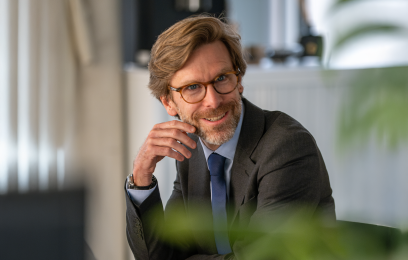Paris/London – 19 November 2020
Sciences Po’s new dual degree in Global and International History with King’s College London is the latest development in a long-term strategic partnership between the two institutions. As the first international dual degree taught at the Sciences Po Doctoral School, the programme also forms part of the school’s internationalisation plan.
This competitive programme allows students to combine Sciences Po’s Master’s degree in History with the MA in Modern History or World History and Cultures at King’s. The course is completed in two years, with the first year spent in Paris and the second in London.
Taught in English, the programme will accept students of any nationality and will begin in September 2021. It is aimed at students wishing to pursue a career in international teaching and research, or in any of a wide range of other sectors: civil service, archives, audio-visual and the creative industries, publishing, journalism, media, NGOs, and more.
This dual degree reinforces the partnership between Sciences Po and King’s College London, which has already given rise to three exchange agreements at Bachelor’s and Master’s level, benefitting around 90 exchange students each year, and a previous dual degree agreement between King’s and the Paris School of International Affairs at Sciences Po (signed in June 2016). This is in addition to long-standing collaborations between academics at both universities, particularly within Sciences Po’s Centre for International Studies (CERI).
“We are pleased to bring together the strengths of our respective History Departments to launch the Graduate Programme in Global & International History. It brings a new and exciting component to the King’s-Sciences Po partnership.” Professor ‘Funmi Olonisakin, Vice President & Vice Principal (International), said.
In the words of Vanessa Scherrer, Sciences Po’s Director of International Affairs:
“Thanks to this new partnership with our partners at King’s, students will benefit from exceptional teaching in historical research, distinguished by its rigorous comparative element. This prestigious programme further advances the internationalisation of the Sciences Po Doctoral School at a time when, more than ever before, our institution is championing the European and international dimension of its teaching.”
More information on the Dual Degree here:
https://www.sciencespo.fr/ecole-doctorale/en/content/sciences-po-kings-college-london.html
About King’s College London
King’s is the fourth oldest university in England: it was founded in 1829 as a university “in service to society”. It is a research-intensive university located in the heart of London and a member of the Russell Group (UK's top 24 research-intensive universities). In the 2014 Research Excellence Framework (REF) King’s was ranked 6th nationally in the ‘power’ ranking, which takes into account both the quality and quantity of research activity. King’s ranks 9th in the Times Higher Impact rankings that assesses Universities against the UN Sustainable Development Goals.
The Faculty of Arts & Humanities at King’s is one of the most prestigious arts and humanities faculties in the country. Based in the heart of London it boasts close ties to many of the city’s most renowned cultural institutions, such as the British Museum, Shakespeare’s Globe and the National Portrait Gallery. It offers undergraduate degrees, postgraduate master’s courses and extensive research opportunities in all aspects of human culture and history, from ancient languages to contemporary film studies
https://www.kcl.ac.uk/artshums/about
About Sciences Po
Founded in 1872, Sciences Po is France’s leading research university in the social sciences. Sciences Po offers degrees at the undergraduate, graduate and executive education levels, and developed 42 dual degree programmes with its network of 470 partner universities.
Today, half of Sciences Po’s 13,000 students are international and represent 150 nationalities. Education at Sciences Po is multidisciplinary, multilingual and outward looking. It also places great emphasis on professional exposure. Following completion of their degree, 80% of the graduates are hired within six months of graduation and 39% start their career abroad. Sciences Po holds a high standard of social responsibility, and plays a pioneering role in the promotion of diversity and equal opportunity in higher education. Sciences Po has an array of financial aid for students of all origins and 26% of the student body hold a scholarship. For more information on Sciences Po: www.sciencespo.fr/en
Media contacts
Sciences Po: Marie Frocrain, marie.frocrain@sciencespo.fr, tel. +33 (0)1 49 54 37 71
King’s College London: Holly Finch, holly.finch@kcl.ac.uk

18.06.2025
CONFLICTS: AN INTERDISCIPLINARY ANALYSIS LED BY HUGO MICHERON IN SCIENCES PO’S JOURNAL COMPRENDRE SON TEMPS
Paris, 18 June 2025 – The third issue of Comprendre son temps, the journal published by Sciences Po, offers an in-depth analysis of contemporary conflicts amidst heightened geopolitical tensions.
Political scientist Hugo Micheron, who specialises in the Middle East and jihadism, coordinated the contributions of ten researchers who aimed to explore the new forms of conflict that have recently emerged: the militarisation of digital space, the weaponisation of information, the reconfiguration of alliances and power dynamics, the hybridisation of threats, and the return of high-intensity warfare — from Ukraine to Gaza. These contributions examine the systemic transformations redefining the attributes of power and critically assess Europe’s evolving role in the global order.
Contributors to this issue include Thierry Balzacq, Professor and researcher at the Centre for International Studies (CERI); Christophe Jaffrelot, CNRS Research Director at CERI; and Frédéric Ramel, Professor and researcher at CERI. Regular contributors to Sciences Po have also participated, such as writer and lecturer Giuliano Da Empoli; Asma Mhalla, political scientist and lecturer; and author Karine Tuil.
Hugo Micheron, scientific director of the issue : “The current period is marked by profound geopolitical transformations that challenge Europe’s place and role on the world stage, as well as its ability to assert itself as a leading geopolitical actor. It is essential for a group of influential EU countries to align their diplomatic orientations in order to rethink conflict in all its strategic dimensions. This is the collective analysis put forward by Sciences Po researchers in this issue."
Luis Vassy, Director of Sciences Po : "In an era where conflict is no longer an exception but a structural reality, it is vital to place this notion at the heart of both our scientific inquiry and educational mission."
About Comprendre son temps
Comprendre son temps is Sciences Po’s journal in the humanities and social sciences, offering insights into the major ruptures shaping today’s world and supporting both public and private decision-making. Published biannually, it seeks to make the institution’s high-quality academic research accessible to the widest possible audience by addressing a major social and political issue.
About Hugo Micheron
Hugo Micheron is a political scientist, fluent in Arabic and specialising in the Middle East and jihadism. He is a Senior Fellow at the Program on Extremism at George Washington University and teaches at Sciences Po, where he leads the seminar Artificial Intelligence, Democracy, and the Information Environment. He is the author of La Colère et l’Oubli. Les démocraties face au jihadisme européen (Gallimard, 2023), awarded both the Femina Essay Prize and the Brienne Prize for Geopolitical Literature in 2023.
Read more

